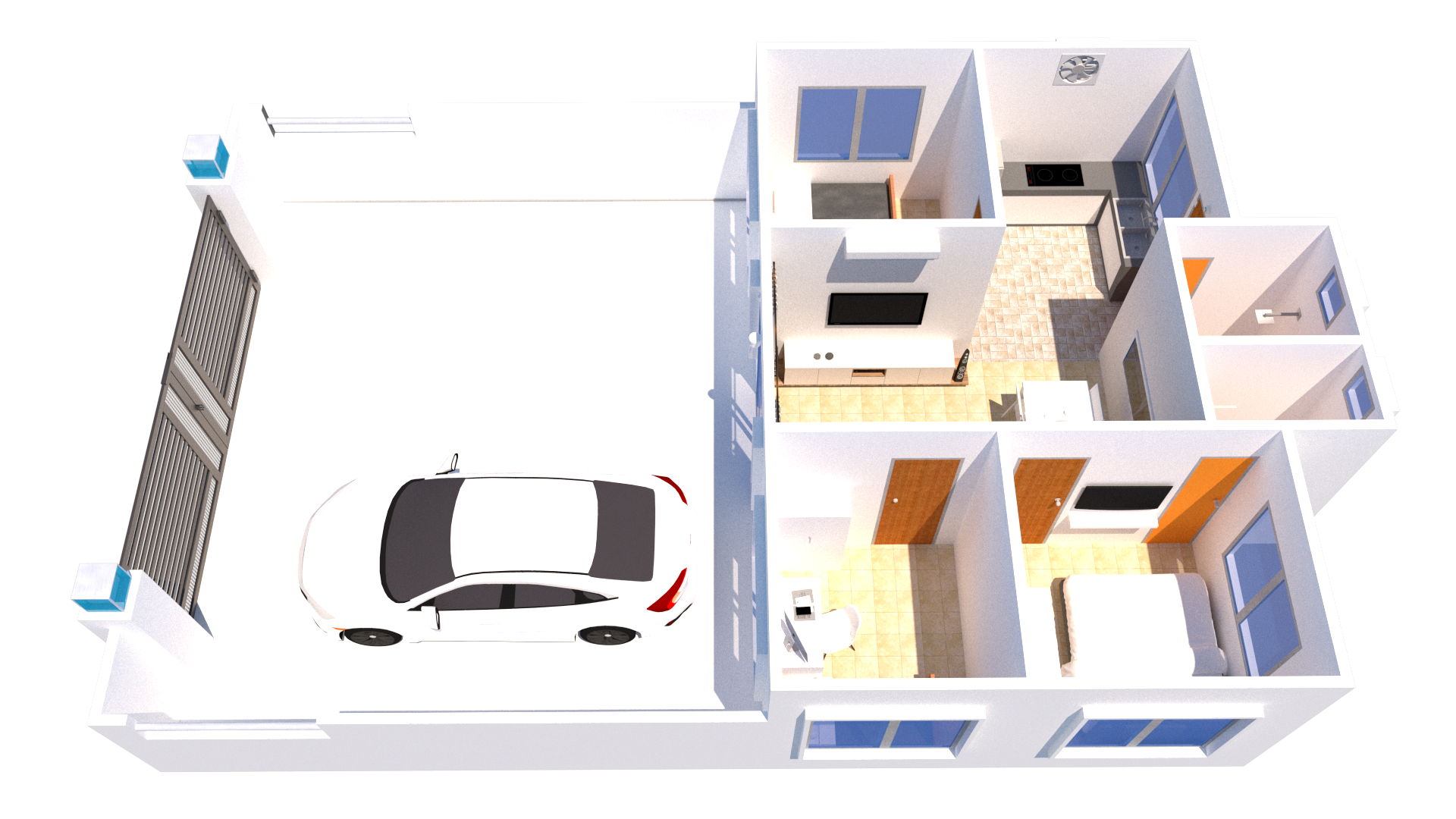
HOW SMART HOME MAKE YOUR LIFE EASIER ?
The concept of a "smart home" has gained popularity as more people embrace technology to simplify daily life. A smart home is equipped with devices and systems that automate, control, and optimize various home functions, enhancing convenience, security, energy efficiency, and more. From controlling lighting and appliances remotely to automating security systems, smart home technology offers a range of benefits that make life significantly easier. Here’s a closer look at how smart homes can transform and streamline your daily routine.
1. Enhanced Convenience
Smart home devices allow you to control various aspects of your home from anywhere with just a smartphone. Imagine adjusting the thermostat while you’re on your way home, turning on the lights before you walk through the door, or starting your coffee maker from your bedroom. With voice-activated devices, such as Amazon Alexa or Google Assistant, controlling these functions is even easier. Whether it's managing household chores or turning on the TV without a remote, smart home automation streamlines daily tasks, saving you time and effort.
2. Improved Security
Smart home security systems offer an extra layer of protection by providing real-time alerts and remote monitoring. Smart cameras, door locks, and alarms can be accessed through your smartphone, allowing you to monitor your home from anywhere in the world. Features like motion detection, video recording, and even remote access to locks and alarms provide peace of mind. Smart doorbells with built-in cameras allow you to see and talk to visitors before opening the door, which is especially useful when you’re away from home or expecting packages.
3. Energy Efficiency and Cost Savings
Smart homes can help reduce energy consumption, making them not only eco-friendly but also cost-effective. Smart thermostats, for example, learn your daily schedule and adjust temperatures accordingly, ensuring that energy is not wasted when you’re not at home. Similarly, smart lighting systems allow you to set lights to turn off automatically in empty rooms or adjust brightness based on the time of day. Smart plugs can also cut down on energy costs by turning off devices that are not in use. The energy savings from these features can reduce monthly utility bills and help minimize your carbon footprint.
4. Health and Wellness Support
Many smart home devices are designed with health and wellness in mind. For example, air quality monitors and smart humidifiers help maintain an optimal indoor environment by adjusting humidity levels or filtering out pollutants. Smart beds or sleep trackers monitor your sleep patterns and provide insights to improve sleep quality. Some smart lighting systems even simulate natural light to support your circadian rhythm, which can lead to better sleep and improved overall well-being.
5. Remote Control and Monitoring
The ability to control and monitor your home remotely is a major advantage of smart homes. With a few taps on your smartphone, you can check if doors are locked, lights are off, and the thermostat is set to your preferred temperature. Forgot to turn off the oven or shut the garage door? No problem. Smart home technology provides real-time status updates and lets you make adjustments, so you don’t have to worry when you’re out.
6. Customization to Fit Your Lifestyle
A smart home can be tailored to your specific needs and preferences. For example, you can set routines or scenes that align with your lifestyle, such as a “Good Morning” routine that turns on the lights, starts the coffee maker, and adjusts the thermostat to a comfortable setting. Similarly, a “Goodnight” routine can ensure all lights are off, doors are locked, and the thermostat is set to energy-saving mode. These customized settings not only make your day more efficient but also add a level of comfort and ease that’s perfectly suited to your lifestyle.
7. Safety in Emergencies
Smart home devices can also help detect and prevent potential hazards. Smart smoke detectors, carbon monoxide detectors, and water leak sensors can send alerts directly to your smartphone if they sense an emergency. These systems provide an added layer of safety, especially when you’re away from home, as they enable you to respond quickly to potential risks. Some systems can even be integrated to automatically shut off water or gas if a leak is detected, minimizing potential damage.
8. Integration with Home Entertainment
Smart home technology enhances entertainment experiences by providing seamless control over multimedia systems. You can use voice commands or smartphone apps to play music, control speakers, or adjust the volume. Many smart TVs and entertainment systems can be integrated into a single interface, allowing you to control everything from one place. Want to create a cozy movie night ambiance? Just tap a button to dim the lights, lower the blinds, and turn on your favorite streaming platform.
9. Future-Proofing Your Home
Investing in smart home technology also helps future-proof your home. As new devices and systems are developed, they can be easily added to your existing smart home ecosystem. Many smart devices are designed to be compatible with each other, making it easy to expand your setup over time. Having a smart home can also increase property value, as buyers are increasingly interested in homes equipped with modern technology.
Conclusion
Smart homes provide a range of benefits that can make daily life more convenient, secure, energy-efficient, and comfortable. By allowing you to control and monitor your home remotely, smart home devices give you peace of mind and save you time and money. With the ability to customize settings and routines, your smart home can be tailored to fit your unique lifestyle. From improved security to energy savings and enhanced convenience, smart home technology is making life easier, one automated task at a time.